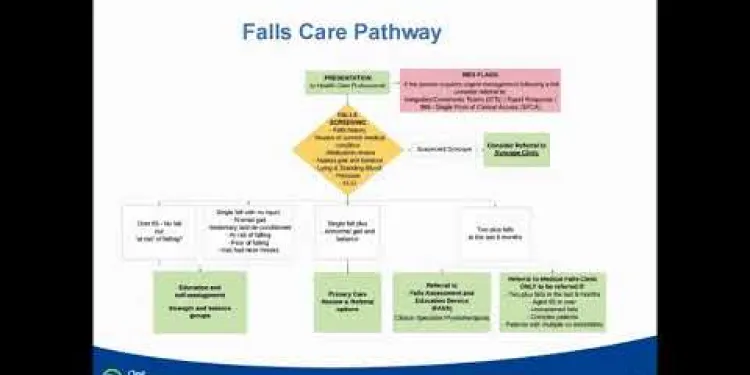
Find Help
More Items From Ergsy search
-

How can I prevent cross-contamination with nuts in the kitchen?
Relevance: 100%
-

What types of nuts can cause allergies?
Relevance: 38%
-

What are Nut Allergies?
Relevance: 37%
-

Is it safe to eat foods labeled as 'may contain nuts'?
Relevance: 35%
-

What should I tell my family and friends about my nut allergy?
Relevance: 35%
-

Can tree nuts and peanuts cause cross-reactions?
Relevance: 34%
-

Are nut oils safe for people with nut allergies?
Relevance: 33%
-

Is there a cure for nut allergies?
Relevance: 33%
-

How can E. coli infections be prevented?
Relevance: 33%
-

Can nut allergies develop later in life?
Relevance: 32%
-

What is the difference between a nut allergy and intolerance?
Relevance: 31%
-

What should I do if I think I have a nut allergy?
Relevance: 30%
-

Can nut allergies be outgrown?
Relevance: 30%
-

How can nut allergies be managed?
Relevance: 30%
-

How is a nut allergy diagnosed?
Relevance: 29%
-

What are the symptoms of a nut allergy?
Relevance: 27%
-

Is epinephrine the only treatment for severe nut allergy reactions?
Relevance: 25%
-

What foods should I avoid if I have a nut allergy?
Relevance: 23%
-

How are special dietary requirements catered for in school meals?
Relevance: 23%
-

What measures are taken to ensure food safety in school meals?
Relevance: 20%
-

Are there any recent treatments or research developments for nut allergies?
Relevance: 17%
-

How can healthcare providers prevent the spread of flesh-eating bacteria in hospitals?
Relevance: 17%
-

How can I prevent eczema flare-ups?
Relevance: 17%
-

Can Alzheimer's disease be prevented?
Relevance: 16%
-

Can lifestyle changes help prevent Super Flu?
Relevance: 16%
-

Can hypotony be prevented?
Relevance: 14%
-

Falls Prevention Podcast
Relevance: 14%
-

Can CFS be prevented?
Relevance: 14%
-

Can meningitis be prevented?
Relevance: 14%
-

Can gonorrhoea be prevented?
Relevance: 14%
-

Falls and Falls Prevention
Relevance: 13%
-

Can chickenpox be prevented?
Relevance: 13%
-

Can Rubella be prevented?
Relevance: 13%
-

Can sunburn be prevented?
Relevance: 13%
-

Can shingles be prevented?
Relevance: 13%
-

Is postnatal depression preventable?
Relevance: 13%
-

Can shingles be prevented?
Relevance: 13%
-
Are there preventative measures for eating disorders?
Relevance: 13%
-

How can HPV be prevented?
Relevance: 13%
-

How can obesity be prevented?
Relevance: 13%
Understanding Cross-Contamination
Cross-contamination involving nuts is a significant concern in the kitchen, especially for individuals with nut allergies. It occurs when nuts inadvertently come into contact with other foods, surfaces, or utensils, potentially triggering allergic reactions. Preventing cross-contamination is crucial to ensure the safety of those with nut allergies.
Dedicated Nut-Free Zones
The first step in preventing cross-contamination is establishing a dedicated nut-free zone in your kitchen. This area should be entirely free from any contact with nuts and should be used exclusively for preparing and serving nut-free food. Clearly label this section and inform all household members about its purpose. If possible, have separate cooking utensils, cutting boards, and appliances for nut-free preparations.
Proper Labelling and Storage
To reduce the risk of cross-contamination, it's essential to store nuts in airtight containers away from other ingredients, especially those meant for nut-free recipes. Clearly label all containers that contain nuts and remind family members to seal them properly after use. Consider a separate cupboard or shelf for storing nuts, ideally away from food items or ingredients that may inadvertently come into contact with them.
Cleaning and Hygiene Practices
Good hygiene is critical in preventing cross-contamination with nuts. Thoroughly wash hands with soap and water before and after handling nuts. Clean kitchen surfaces, cutting boards, and utensils with hot, soapy water after they have been in contact with nuts. Using a dishwasher can be particularly effective at removing traces of nuts from kitchenware. Furthermore, ensure that sponges, dishcloths, and towels are frequently changed or sanitized to prevent the spread of allergenic proteins.
Education and Awareness
Educating all family members, guests, and anyone involved in food preparation is vital in maintaining a nut-free environment. Ensure everyone understands the importance of preventing cross-contamination and the potential consequences of allergic reactions. Communicate clearly about which utensils and appliances are designated for nut-free food preparation and the correct procedures for handling and cleaning.
Substitutes and Alternatives
Consider using nut substitutes in cooking and baking to eliminate the risk of cross-contamination. Many recipes can be adapted using seeds, such as sunflower or pumpkin seeds, which provide a similar texture without the allergenic risk. For spreads, seed butters like sunflower seed butter can be used in place of peanut or almond butter.
Conclusion
Preventing cross-contamination with nuts in the kitchen involves a combination of strategic planning, diligent cleaning practices, and continuous education. By creating nut-free zones, using proper storage techniques, maintaining cleanliness, and fostering awareness among those using the kitchen, you can ensure a safe environment for everyone, particularly individuals with nut allergies. These precautions will help minimize the risk of accidental exposure to nuts, providing peace of mind in your culinary space.
Understanding Cross-Contamination
Cross-contamination happens when nuts touch other foods or things like surfaces or utensils in the kitchen. This is a big worry for people allergic to nuts. Even a small amount can make them very sick. It is very important to stop cross-contamination to keep everyone safe who has a nut allergy.
Dedicated Nut-Free Zones
To keep people safe from nuts, make a special area in the kitchen that is nut-free. This place should only be used for making and serving foods that do not have nuts. Put up a sign to show everyone where this area is and what it is for. If you can, use separate cooking tools, boards, and machines for nut-free food.
Proper Labelling and Storage
Keep nuts in containers that close tightly. Store them away from other foods, especially foods made without nuts. Label all nut containers clearly. Remind everyone to close containers tightly after use. If you can, have a separate shelf or cupboard for nuts that is away from other foods.
Cleaning and Hygiene Practices
Cleaning well is very important. Wash your hands with soap and water before and after you touch nuts. Clean kitchen surfaces, boards, and utensils with hot soapy water after they touch nuts. Wash them in a dishwasher if you can. Change sponges, dishcloths, and towels often to keep them clean.
Education and Awareness
Teach your family, guests, and anyone cooking about keeping the kitchen nut-free. Make sure they know why it's important not to mix nuts with other foods. Tell them which tools and machines are just for nut-free cooking and how to clean them properly.
Substitutes and Alternatives
You can use other things instead of nuts, like seeds, in recipes. Seeds like sunflower or pumpkin seeds can work. They feel similar without causing allergies. Instead of peanut or almond butter, try seed butters like sunflower seed butter.
Conclusion
Stopping cross-contamination with nuts means planning carefully, cleaning well, and teaching others. Make safe nut-free areas, store things properly, keep everything clean, and help others understand why it matters. This way, you can keep everyone safe from accidental nut exposure in the kitchen.
Frequently Asked Questions
What is cross-contamination with nuts?
Cross-contamination with nuts occurs when nuts are unintentionally transferred to food or surfaces that should not contain nuts, posing a risk for individuals with nut allergies.
How can I properly clean utensils to prevent nut cross-contamination?
Wash utensils thoroughly with hot, soapy water, and consider using separate sets of utensils for nut-free cooking.
What steps can I take to clean surfaces after using nuts?
Use hot, soapy water or a disinfectant cleaner to thoroughly wipe down surfaces that have come into contact with nuts.
How should I store nuts to minimize cross-contamination risk?
Store nuts in airtight containers, ideally in a separate area of the kitchen away from nut-free foods.
Can using separate cutting boards help prevent cross-contamination with nuts?
Yes, it's advisable to use separate cutting boards for nut and non-nut foods and to clearly label them.
What kitchen practices can help prevent cross-contamination?
Practice good hygiene, use separate equipment for nut-free food, and keep nuts and non-nut foods apart.
How important is it to label foods containing nuts?
It's very important to clearly label foods that contain nuts to prevent accidental exposure for those with allergies.
What should I do if someone in my home has a nut allergy?
Implement strict control measures such as separate storage, dedicated utensils, and thorough cleaning routines.
How can I prevent cross-contact when baking with nuts?
Use dedicated baking equipment and utensils for nut and nut-free recipes and clean them immediately after use.
Is it safe to reuse kitchen sponges or cloths that have been in contact with nuts?
To minimize risk, use disposable papers or dedicated cleaning materials for nut areas, or thoroughly wash cloths and sponges after use.
What are some good habits to adopt to avoid nut contamination?
Always wash hands after handling nuts, keep nut and nut-free foods separate, and label all homemade products containing nuts.
Should I consider using different appliances for nut processing?
If possible, dedicate appliances such as blenders or food processors for nut-free use only.
Can storing nuts in the fridge prevent cross-contamination?
Storing nuts in airtight containers can contain allergens, but location is key; keep them separate from other foods.
How can I ensure packaged nut products don’t cause contamination?
Handle packaged nuts on a different surface and wash hands after handling to avoid spreading allergens.
What should I do if cross-contamination with nuts is suspected?
Discard suspect food, re-clean surfaces and affected utensils, and notify those with allergies promptly.
Are there specific cleaning agents recommended to remove nut residue?
Standard kitchen cleaners and dishwashing liquids are effective; ensure thorough cleaning with warm water.
Can gloves help prevent nut cross-contamination?
Gloves can be helpful, but ensure you dispose of or thoroughly clean them after touching nuts.
How often should I clean my kitchen to maintain a nut-free environment?
Regular daily cleaning with attention to detail, especially following any cooking that involves nuts, is recommended.
Is it necessary to sterilize my kitchen if someone has a severe nut allergy?
While not necessary to sterilize, implementing strict cleaning and separation methods can significantly reduce risks.
How can family members help in preventing nut cross-contamination?
Educate them about nut allergies, set up house rules for food preparation, and involve them in cleaning routines.
What is cross-contamination with nuts?
Cross-contamination with nuts means that nuts can get mixed with other foods by accident. This is a problem for people who are allergic to nuts.
For example, if you use the same knife to cut a nut cake and then use it to cut a cheese sandwich, nuts can spread to the sandwich.
To help stop this, always use clean tools and wash your hands. It is also good to read food labels to see if nuts are there.
Cross-contamination with nuts happens when nuts accidentally get onto food or surfaces that should not have nuts. This can be dangerous for people who are allergic to nuts.
How can I clean kitchen tools to stop nut mixing?
Wash dishes really well with hot, soapy water. It might be a good idea to have separate dishes just for food with no nuts.
How do I clean surfaces after using nuts?
Here is how to clean surfaces after using nuts:
- Use soap and water. Wash the surface with warm, soapy water.
- Rinse well. Make sure all the soap is gone.
- Dry the surface. Use a clean towel to dry it.
- Use a disinfecting wipe. This can kill any germs left behind.
Try these tools to help you:
- Sponges or cleaning cloths can help scrub well.
- A timer can remind you to wait while the disinfectant dries.
Use hot, soapy water or a special cleaner to clean surfaces that have touched nuts. Clean them really well.
How can I keep nuts safe and clean?
Keep nuts in a tight container so air can't get in. It’s best to keep them in a different part of the kitchen away from other foods.
Can using different cutting boards stop nuts from mixing with other foods?
Using different cutting boards can help keep nuts from getting on other foods. This can be good if someone is allergic to nuts.
Here is how you can do it:
- Use one cutting board just for nuts.
- Use a different cutting board for other foods.
- Clean the cutting boards well after using them.
Ask for help if you need it. You can use labels or color codes on your boards to remember which is which.
It's a good idea to use different cutting boards for foods with nuts and foods without nuts. Make sure to label them so you know which is which.
How can you stop germs from spreading in the kitchen?
Here are some easy ways to keep things clean:
- Wash your hands often with soap and water.
- Use different cutting boards for raw meat and vegetables.
- Keep raw meat away from other foods.
- Clean knives and plates after using them for raw meat.
- Use gloves if you have a cut or sore on your hands.
You can use pictures or videos to help understand these steps better. Asking an adult for help is okay, too!
Keep everything clean. Use different tools for food with nuts and food without nuts. Keep foods with nuts and foods without nuts apart.
Why is it important to label foods with nuts?
It's super important to put clear labels on foods that have nuts. This helps make sure people with nut allergies don't eat them by accident.
What to do if someone at home is allergic to nuts?
If someone at home can't eat nuts, do this:
- Keep nuts out of the house. Don't buy them.
- Read food labels. Check if they have nuts.
- Wash hands and surfaces after eating foods with nuts.
- Use separate cooking tools for nut-free food.
- Tell everyone in the house. Remind them often.
- Have a plan for emergencies. Know what to do and who to call.
If someone accidentally eats nuts, get help from a doctor fast.
Use pictures and apps to help remember safe foods.
Keep things very clean and safe. Use special places to store things. Have tools just for one job. Clean everything very well after you use it.
How can I stop nuts from mixing with other foods when baking?
Use special baking tools for recipes with nuts and other tools for recipes without nuts. Clean your tools right after you use them.
Can I use kitchen sponges or cloths again after they touch nuts?
If kitchen sponges or cloths touch nuts, it's important to clean them carefully. Nuts can cause allergies for some people.
Here's what you can do:
- Wash the sponges or cloths with hot, soapy water.
- Rinse them well to make sure no nut pieces are left.
- If someone in your home has a nut allergy, it might be safer to use new sponges or cloths.
To be safe, use paper towels or special cloths just for nut areas. If you use regular cloths or sponges, wash them really well after cleaning.
How can I keep nuts away from my food?
Nuts can make some people very sick. Here are some things you can do:
- Read food labels to check for nuts.
- Wash your hands before eating.
- Clean cooking tools and areas that touched nuts.
- Tell people about your nut allergy.
Ask for help if you need it. Use apps or labels to remind you.
Wash your hands after touching nuts. Keep foods with nuts away from foods without nuts. If you make something with nuts, use a label to show it has nuts in it.
Is it a good idea to use different machines to crush nuts?
If you can, have blenders or food processors that are only used for foods without nuts.
Will keeping nuts in the fridge keep them safe from other foods?
If you put nuts in the fridge, it might stop them from mixing or getting dirty with other foods. Having a separate box or bag helps too. Labels can make it easier to know what is inside.
Keep nuts in a jar or box that you can close tight so no air gets in. This helps stop allergies. Put nuts in a different place away from other foods.
How can I make sure packaged nut foods are safe?
Use a different surface for nuts that come in packages. Wash your hands after touching nuts to stop the spread of things that can make some people sick.
What should I do if nuts got mixed with other food?
If you think there might be nuts in your food by mistake:
- Tell an adult right away.
- Do not eat the food.
- If you have allergies and feel funny, tell someone and get help.
- Ask someone you trust to make sure the food is safe.
You can use a picture chart to help remember what to do. Find someone to talk to if you feel worried.
Throw away any food you think might not be safe. Clean all kitchen surfaces and tools again. Tell people with allergies as soon as you can.
What cleaning products can you use to clean away nut bits?
Use kitchen cleaners and dish soap to clean. Make sure to use warm water.
Do gloves stop nuts from spreading?
Gloves can help keep you safe. But remember, throw them away or wash them well after touching nuts.
How often should I clean my kitchen to keep it nut-free?
To keep your kitchen safe from nuts, clean it every day.
Here are some tips to help:
- Wipe the counters, tables, and other surfaces.
- Use soap and water to clean dishes and utensils.
- Sweep or vacuum the floors.
- Be careful when buying food. Make sure it does not have nuts.
If you need help, ask a family member or friend.
Clean every day. Pay close attention to cleaning, especially after cooking with nuts.
Do I need to clean my kitchen a lot if someone can't eat nuts?
It is important to keep things clean and separate them properly. This helps make things safer and lowers risks.
How can family members stop nuts from mixing with other foods?
Family members can help in keeping nuts away from other foods. Here are some tips:
- Keep nuts in a special place. Don't put them with other foods.
- Wash hands after touching nuts. This stops nut dust from spreading.
- Use different plates and tools. Have some just for things with nuts.
- Tell everyone about the nut rules. Remind them often.
Tools like picture labels or reminder notes can help everyone remember these rules.
Teach them about nut allergies, have rules at home for making food, and get them to help with cleaning.
Useful Links
This website offers general information and is not a substitute for professional advice.
Always seek guidance from qualified professionals.
If you have any medical concerns or need urgent help, contact a healthcare professional or emergency services immediately.
- Ergsy carfully checks the information in the videos we provide here.
- Videos shown by Youtube after a video has completed, have NOT been reviewed by ERGSY.
- To view, click the arrow in centre of video.
- Most of the videos you find here will have subtitles and/or closed captions available.
- You may need to turn these on, and choose your preferred language.
- Go to the video you'd like to watch.
- If closed captions (CC) are available, settings will be visible on the bottom right of the video player.
- To turn on Captions, click settings .
- To turn off Captions, click settings again.
More Items From Ergsy search
-

How can I prevent cross-contamination with nuts in the kitchen?
Relevance: 100%
-

What types of nuts can cause allergies?
Relevance: 38%
-

What are Nut Allergies?
Relevance: 37%
-

Is it safe to eat foods labeled as 'may contain nuts'?
Relevance: 35%
-

What should I tell my family and friends about my nut allergy?
Relevance: 35%
-

Can tree nuts and peanuts cause cross-reactions?
Relevance: 34%
-

Are nut oils safe for people with nut allergies?
Relevance: 33%
-

Is there a cure for nut allergies?
Relevance: 33%
-

How can E. coli infections be prevented?
Relevance: 33%
-

Can nut allergies develop later in life?
Relevance: 32%
-

What is the difference between a nut allergy and intolerance?
Relevance: 31%
-

What should I do if I think I have a nut allergy?
Relevance: 30%
-

Can nut allergies be outgrown?
Relevance: 30%
-

How can nut allergies be managed?
Relevance: 30%
-

How is a nut allergy diagnosed?
Relevance: 29%
-

What are the symptoms of a nut allergy?
Relevance: 27%
-

Is epinephrine the only treatment for severe nut allergy reactions?
Relevance: 25%
-

What foods should I avoid if I have a nut allergy?
Relevance: 23%
-

How are special dietary requirements catered for in school meals?
Relevance: 23%
-

What measures are taken to ensure food safety in school meals?
Relevance: 20%
-

Are there any recent treatments or research developments for nut allergies?
Relevance: 17%
-

How can healthcare providers prevent the spread of flesh-eating bacteria in hospitals?
Relevance: 17%
-

How can I prevent eczema flare-ups?
Relevance: 17%
-

Can Alzheimer's disease be prevented?
Relevance: 16%
-

Can lifestyle changes help prevent Super Flu?
Relevance: 16%
-

Can hypotony be prevented?
Relevance: 14%
-

Falls Prevention Podcast
Relevance: 14%
-

Can CFS be prevented?
Relevance: 14%
-

Can meningitis be prevented?
Relevance: 14%
-

Can gonorrhoea be prevented?
Relevance: 14%
-

Falls and Falls Prevention
Relevance: 13%
-

Can chickenpox be prevented?
Relevance: 13%
-

Can Rubella be prevented?
Relevance: 13%
-

Can sunburn be prevented?
Relevance: 13%
-

Can shingles be prevented?
Relevance: 13%
-

Is postnatal depression preventable?
Relevance: 13%
-

Can shingles be prevented?
Relevance: 13%
-
Are there preventative measures for eating disorders?
Relevance: 13%
-

How can HPV be prevented?
Relevance: 13%
-

How can obesity be prevented?
Relevance: 13%


